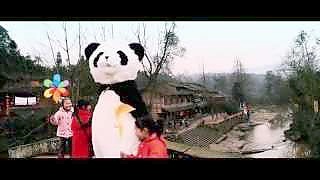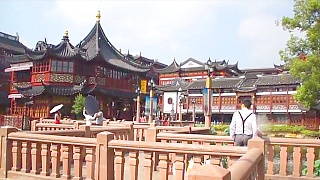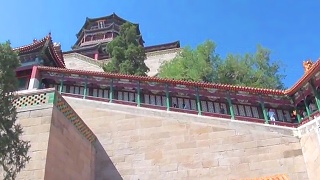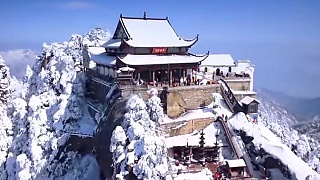
|
Metro systems
The two largest metro systems in the world are in ShangHai and BeiJing. There are also metro systems in many other Chinese cities. These are all super modern, spacious, artistically appealing and easy to use for visitors with announcements in both Chinese and English, with signs both in Chinese and PinYin.
Check out our videos on various Chinese metro systems.
The Beijing metro system has over 600 miles of track and over 600 stations. It carries over 10 billion passengers annually, making it one of the busiest subway systems in the world. It operates one of the world's largest fleets of subway cars, with over 4,000 cars in service.
The Beijing metro is also one of the most technologically advanced subway systems in the world, with many of its trains and stations equipped with advanced features such as automated train control, platform screen doors, and real-time passenger information systems.
The Beijing metro is known for its distinctive architecture and design, with many stations featuring works of art, sculptures, and other design elements. It is also known for its efficient and fast service, with trains running at high frequencies and minimal delays.
The Beijing metro is also very affordable and accessible, with fares starting from as low as CNY3 (about $0.4 / £0.35) for a single journey with discounts for frequent users. It has also been made more convenient for tourists by allowing the use of contactless payment methods such as WeChat Pay, Alipay and UnionPay.
Taxis
In China, taxis are easy to find and very affordable, unlike in the West; they are widely used by nearly everyone. For example, Beijing has approximately 66,000 registered taxi vehicles operating in the city as of 2021. The standard taxi fare in Beijing is around ¥13 (or about $2 / £1.40) for the first 3 kilometers (about 1.8 miles) plus an additional ¥2.3 (about $0.35 / £0.25) for each additional kilometer. There can be higher tariffs for night time (after midnight).
High speed rail
China has built one of the most extensive high-speed rail networks in the world, which is known for its speed, efficiency, and connectivity. China has the world's largest high-speed rail network, with over 22,000 miles of track and over 350 stations. The high-speed rail network operates at speeds of up to 217 mph, making it one of the fastest in the world.
China's high-speed rail system carries over 3 billion passengers annually, making it the busiest high-speed rail networks in the world. China's high-speed rail system is also affordable and accessible, with fares starting from as low as CNY50 (about $7) for a single journey and discounts for frequent users.
China has also been exporting its high-speed rail technology and know-how to other countries such as Indonesia, Turkey, Russia and more.
Air travel
Air travel is an important part of China's transportation system, with several major airports and a rapidly growing number of passengers. Here are some facts about air travel in China:
China has over 220 commercial airports, making it the country with the second-largest number of airports in the world, behind the United States.
China's three major airports are Beijing Capital International Airport, Shanghai Pudong International Airport, and Guangzhou Baiyun International Airport. These three airports handle a large number of passengers annually, with Beijing Capital International Airport handling over 100 million passengers in 2020.
China's domestic air travel market is the second-largest in the world, behind the United States, with over 600 million passengers in 2020 and over 60 million international passengers.
China's air travel market has been expanding rapidly in recent years, with several new airports and routes being added.
China's major airlines, such as Air China, China Eastern Airlines, and China Southern Airlines, are among the largest in the world, and they operate a large fleet of modern aircraft. It is also becoming more affordable, with the increasing competition between airlines leading to lower fares.
China's air travel market is also becoming more convenient for travelers, with the increasing use of online booking and check-in, as well as the introduction of e-visas for some countries. It is also becoming more sustainable, with many airlines investing in more fuel-efficient aircraft and implementing more environmentally-friendly practices.
China's air travel market is a modern, efficient, and highly-used transportation system that connects many of the country's major cities and helps to keep the country moving. It is constantly evolving to match the country's needs and to make the passenger experience more pleasant, but also to reduce its impact on the environment.
|
 Happiness versus pleasure
Happiness versus pleasure








































